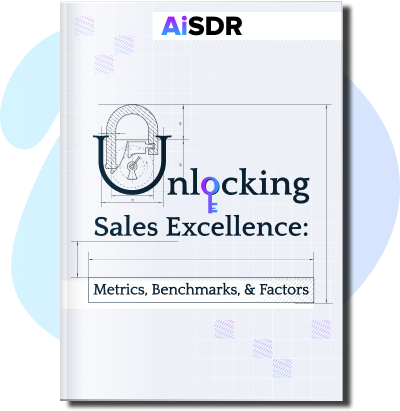AI in Market Research: Key Techniques and 15 Best Tools for Entering New Markets

Market research is a task that frequently gets overlooked. Explore 15 AI tools that save you time and automate research
Venturing into a new market is always a risky business. There is so much that’s unknown about new customer bases, such as their specific needs and how your product can solve their struggles. Too often, companies launch into new markets only to find out the hard way that their messaging didn’t resonate or their product lacked a market fit.
That’s why thorough market research is critical.
It’s also where AI tools can become a game-changer.
The right AI solution can take over and automate key parts of the market research process, saving time and money while regularly generating actionable insights. This article explores the 15 best market research tools to help you pick the right one for your needs.
Why do you need to conduct market research?
Chances are you’re already a pro who understands the value of market research. That being said, the pace of business today necessitates a faster and more in-depth understanding of buyer trends, customer journeys, and up-and-coming business rivals if you want to stay competitive.
For example, customer loyalty in the United States declined from 79% in 2022 to 68% in 2023. That’s a massive 11% drop in just one year.
This means companies can no longer rely on an ICP they created years ago. If you want to retain your customers, you’ll have to frequently touch base with them, learn about their shifting needs, and update your product accordingly.
Even the largest big-name brands are susceptible to this trend.
Over the past few years, traditional payment providers like Visa and Mastercard have started to assess market appetite for decentralized, blockchain-based financial products. They know that if they don’t stay on top of current trends, they risk sharing the fate of other major brands like BlackBerry and Blockbuster.
Sporadic manual research may keep you afloat, but for sustainable, long-term success, you’ll need a solution that establishes a steady stream of data insights using primary and secondary research. That’s where AI-powered market research tools can shine.
What are the benefits of market research tools?
Market research software eliminates the need for manual research while also providing these benefits:
- Saving time and resources – AI in market research handles intensive data processing that otherwise requires substantial human resources.
- Understanding your customers better – Many tools allow users to easily create custom surveys and user profiles that uncover the motivations and needs of target segments.
- Optimizing web presence and content – Some platforms analyze competitor content performance to help you increase search visibility and deliver engaging online experiences.
- Forecasting future results – Market research tools incorporate predictive data modeling to forecast conversion rates, revenue trends, customer lifetime value projections, and more.
- Tailoring email content – High-performing email approaches like the Yurii Veremchuk framework rely heavily on research and intent data.
Best practices for successful market research
Advanced AI market research tools are only part of the equation. You’ll also need to carefully plan how you’ll conduct your market research to obtain the greatest value.
Here’s a quick look at some market research best practices:
- Formulate a clear research goal – Set specific objectives for what you want to learn upfront. Identify target demographics or campaign success metrics. In addition, map out the research methods you’ll be using, such as surveys, analytics, or focus groups.
- Personalize the information-gathering process to match your needs – Don’t just rely on traditional survey templates or generic market research questions, as this will yield generic insights. Many tools are available to tailor your research activities to your particular use case.
- Keep exploring – Let early findings guide the next research steps. Analyze if they match your desired goals and continue with extra questions based on previous results.
Ultimately, it’s your call to decide what results to look for and what action to take based on the findings. But AI-powered tools will greatly help you along the way towards the right decision.
AI tools for market research
Global corporations are expected to spend over 40% of their core IT budgets on AI by 2025. With more companies implementing AI, the critical question is which AI tools are the best, particularly in market research. Here are some of the top contenders.
1. AiSDR
AiSDR is a sales assistant that handles the routine work of prospecting and lead qualification when expanding to unknown regions. With its AI search capability, you can quickly validate ICPs for each market, monitor engagement, or use generative AI to initiate exploratory conversations in any language.
Through automated email campaigns, AiSDR AI helps you identify market fit, experiment with offerings and messaging at minimal cost, and expand your reach or target a certain region or city.
Pricing: $750/month for 1,000 emails sent
2. SurveyMonkey
SurveyMonkey lets you create custom surveys for various use cases, from online polls to event feedback. With a built-in AI, you can easily detect question biases, spot logic fallacies, and tailor questionnaires to your audience.
Pricing: $25/user per month
3. BuzzSumo
BuzzSumo is a content marketing tool to discover the most popular content formats in your niche. It scans your competitors’ blog posts to see what topics go viral so you can optimize your marketing strategies.
Pricing: $159/month if billed annually
4. Glimpse
Glimpse is a self-service platform that streamlines the market research process through AI. First, it automatically creates questions to help solve problems for different audiences. Then, the at-a-glance data summarizing tool spotlights the main takeaways. Finally, writing tools instantly generate persuasive messaging tailored to particular niches from survey results.
Pricing: $458.33/month if billed annually. A free Starter package is available for individuals with occasional needs
5. Statista
Statista provides more than just pre-packaged market statistics — It enables DIY analytics for your specific needs. Statista Q, with its Pragmatic AI, lets you track market sentiment shifts.
Meanwhile, Statista Content & Design turns research data into simplified infographics, PowerPoint presentations, animated videos, and more.
Pricing: Available on demand
6. Loop11
Loop11 is a UX testing tool. It has multiple testing solutions, including A/B testing, online usability testing, and true intent studies. Its AI Insights summarizes user interview recordings and texts and provides follow-up reports with design recommendations.
Pricing: $179/month if billed annually
7. Google Analytics 4
Google offers a robust suite of tools for market research and surveys. While Google Analytics 360 incorporates some ML mechanisms, Google recently announced the launch of the next-gen version called Google Analytics 4 (GA4) with an improved data model.
Specifically, GA4 can make predictions by applying ML algorithms to user behavior data.
Pricing: Not publicly available
8. Tableau
Tableau is business intelligence and analytic software. Tableau AI aims to make advanced analytics more accessible to a wider business audience beyond just data analysts.
Tableau Pulse uses Tableau AI to provide customized data reports right in the admins’ daily workflows, so all team members can easily understand the data and make decisions much faster.
Pricing: $15/user per month, billed annually
9. Typeform
Typeform is a tool for creating online survey forms. Its main goal is to make forms more compelling and conversational to encourage more people to complete them. Typeform integrates with popular apps like Google Sheets, Salesforce, Slack, and others to analyze response data.
Pricing: Available on demand
10. SEMrush
SEMrush is a content marketing tool that lets you access a database of 25 billion keywords. With its help, you can find popular content from competitor websites and boost your search rankings.
Pricing: $108.33/month if billed annually
11. Ahrefs
Ahrefs is another content marketing toolkit. It arms you with search engine insights to create smarter content and SEO strategies.
Ahrefs can audit your website to flag any issues that might turn visitors off. The tool also compiles key data, like monthly search volumes and ranking changes, into simple charts.
Pricing: $99/month
12. Upwave
Upwave is a platform for predictive data analytics. The tool visualizes data patterns through charts and metrics for easy analysis.
What’s more, the software shows real-time norms, factoring in seasonal swings. This allows you to compare realistic metrics against expectations.
Pricing: Available on demand
13. Make My Persona
Make My Persona is Hubspot’s free interactive web tool for persona generation. It asks key questions and guides your research, from assumptions to particular archetypes. The finished personas can be downloaded as PDFs or shared via links for internal use.
Pricing: Free
14. Qualtrics
Qualtrics is an experience management platform. It provides faster, more meaningful insights using advanced qualitative and quantitative data analytics. The software helps build audience profiles that represent major target groups.
With Qualtrics, you can consistently monitor your brand performance to seize every opportunity and address any obstacles that may impact your user experience.
Pricing: Available on demand
15. SimilarWeb
SimilarWeb offers multiple tools for market research, digital marketing, and sales intelligence. Its company research tools let you understand how your competitors perform digitally and assess their strategies.
With SimilarWeb’s AI market analysis tools, you can reveal changes impacting your industry.
Pricing: $125/month if billed annually
What features should market research software have?
The range of sales and marketing tools now available may seem overwhelming. However, let’s take a look at which features of a good market research software should have:
- Targeted audience research – Seek out tools that reveal target audience interests, opinions, and behaviors over time through quantitative performance data and qualitative surveys. AI search capability is an added bonus.
- Surveys and questionnaires – Prioritize software that makes it simple to create, send, and analyze custom questionnaires while avoiding bias. Surveys should be easy to deploy across websites or emails.
- Data collection and analytics – Find solutions that leverage AI to identify useful patterns within vast volumes of response data.
Proper research tools should feel less like data entry applications and more like trusted partners. With these instruments and market research best practices listed above, you can hit the target with your offerings.
Transform insights into opportunities
As companies venture into new markets, AI becomes instrumental in making smarter decisions every step of the way. While human expertise remains invaluable, AI market research tools make it faster and easier for sales and marketing teams to conduct in-depth research, find answers to complex questions, and control potential bias.
Book a demo to experience how AiSDR can de-risk your market entry and drive results in new regions.
FAQ
What is market research?
Market research is the process of studying your potential or existing customers, as well as competitors. It provides valuable information to fully understand your user needs and preferences.
Why is market research important?
In-depth market research allows you to improve your products and services to better meet customer needs. It also helps you identify opportunities to reach new customers. With the right data, you can avoid costly mistakes that might happen if you expand without prior analysis.
How can AI help me do market research?
AI tools can quickly analyze customer data to identify meaningful patterns. Some AI tools can even generate straightforward reports highlighting actionable customer and competitor insights.











